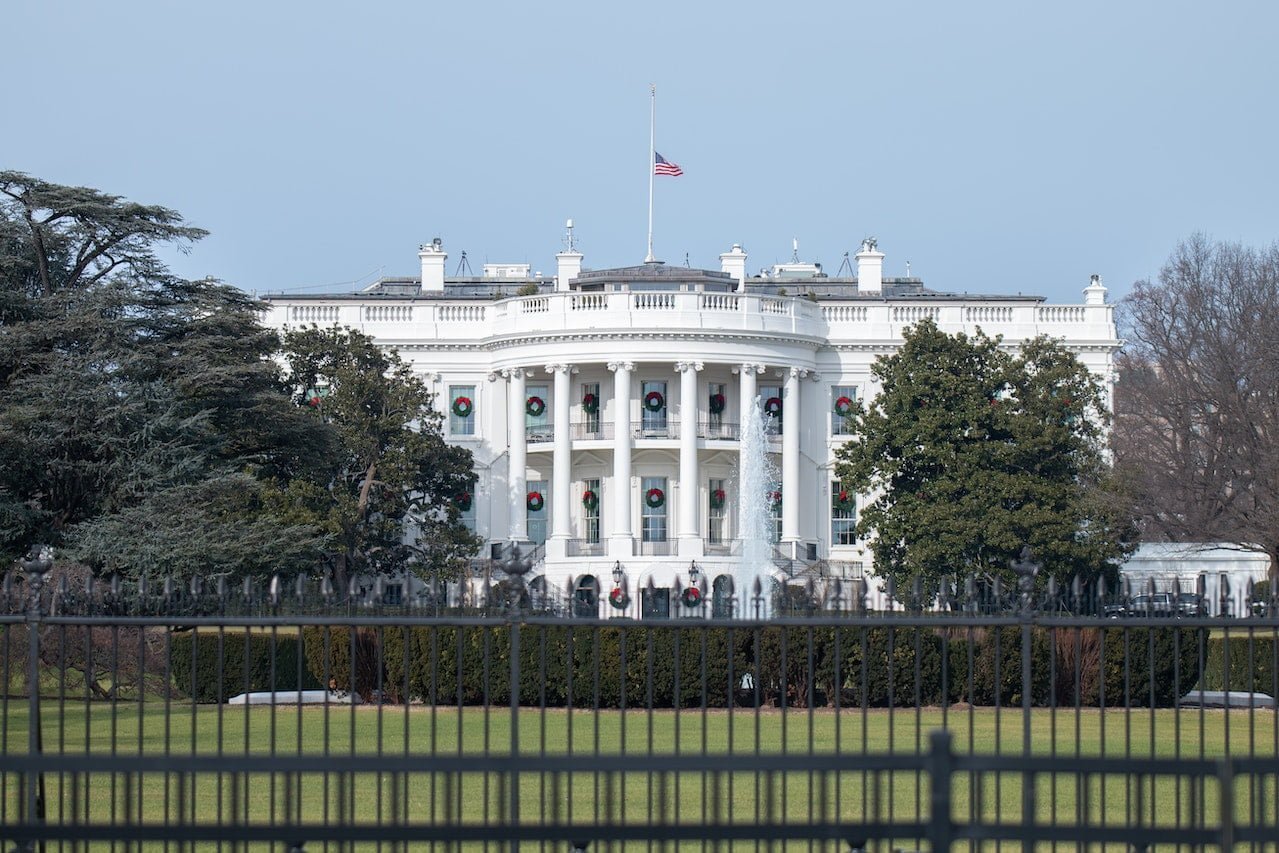Introduction to International Society News
International society news encompasses a broad spectrum of events and developments that occur on the global stage, affecting nations, organizations, and individuals alike. This category of news is pivotal in elucidating the complexities of international relations—the interplay of politics, economics, cultural exchanges, and security concerns among different nations. By keeping abreast of international society news, we gain insight into how nations collaborate, compete, and influence one another in an increasingly interconnected world.
The significance of international society news cannot be understated. In a world where borders are becoming less relevant, the activities of one nation can have far-reaching consequences on others. Understanding these dynamics is vital, not only for policymakers and diplomats but also for businesses, academics, and concerned citizens. By grasping international relations, individuals can better navigate the challenges and opportunities that arise from global interconnectedness. For instance, trade agreements, climate change initiatives, and geopolitical tensions are all issues that require our attention as they shape the current and future landscape of international relations.
Moreover, following the latest international news updates provides a deeper understanding of how global events impact local communities. Issues like humanitarian crises or environmental policies in distant countries may seem remote; however, they often resonate on a personal level, influencing public opinion, legal frameworks, and even economic conditions in various nations. Therefore, the essence of international society news is not solely about reporting facts, but also about fostering greater awareness and dialogue about our shared world.
강남가라오케 Engaging with these narratives cultivates a more informed populace, capable of thoughtful discourse regarding national and global affairs. It prepares citizens to make decisions that reflect an understanding of not only their own country’s interests but also the broader context within which their lives unfold. As we delve into the most recent developments in international society news, we uncover not just stories, but threads that weave together the complex fabric of human interactions across borders.Key Highlights from Major Global News Outlets
In recent months, several significant events have emerged in international news, capturing the attention of global audiences and shaping political landscapes. One major highlight has been the ongoing political upheaval in various regions, particularly in Eastern Europe and the Middle East. For instance, escalating tensions in certain countries have resulted in widespread protests, leading to governmental changes and international calls for reform. These events underscore the fragility of political structures and the urgent need for democratic practices and human rights considerations in international relations.
Moreover, diplomatic relations among countries have also been a focal point of international news. The thawing of long-standing tensions between nations has led to high-profile summits and dialogues. Notably, recent trade agreements negotiated between major economic powers signal a shift towards increased cooperation, reflecting a collective pursuit of economic stability amid lingering uncertainties. Such agreements are crucial as they highlight the interconnectedness of nations and the reliance on collaborative strategies to address mutual challenges.
Humanitarian efforts have gained momentum as global crises, including refugee displacement and climate change, remain pressing issues. News regarding international organizations mobilizing assistance for affected populations illustrates the commitment of the global community to uphold humanitarian principles. Efforts to deliver aid and support are often complicated by geopolitical dynamics, yet they emphasize the importance of solidarity in addressing global challenges. Additionally, health-related news, particularly post-pandemic recovery strategies and vaccination campaigns, continues to dominate discussions. The intricate balance between health security and economic viability remains paramount for many nations as they navigate their paths forward.
These highlights reflect a constantly evolving global landscape where political, economic, and humanitarian factors collectively influence international relations and the lives of people worldwide. Understanding these developments is essential for cultivating a more informed perspective on global issues.
Emerging Trends in Diplomacy and International Relations
In recent years, the field of diplomacy and international relations has experienced several transformative trends. One predominant shift is the increasing emphasis on multilateralism. States are increasingly recognizing that addressing global challenges—such as climate change, humanitarian crises, and economic instability—requires cooperative efforts among multiple nations. This approach stands in contrast to previous unilateral actions by powerful states, fostering a more inclusive diplomatic environment where smaller nations can also actively participate in international decision-making.
Another significant trend is the rise of non-state actors, including multinational corporations, international NGOs, and activist groups. These entities are playing an increasingly pivotal role in global governance, influencing policy and advocacy on critical issues such as human rights, environmental protection, and public health. Non-state actors often possess specific expertise and resources that complement traditional state actors, leading to innovative solutions and broader participation in the diplomatic process. This change also indicates a shift in power dynamics, democratizing international relations and allowing for a multiplicity of voices in discussions that shape global policies.
Moreover, the influence of social media has dramatically reshaped the landscape of public opinion and policy-making. Diplomatic communications are no longer confined to formal channels; instead, they are increasingly disseminated through platforms such as Twitter, Facebook, and Instagram. This digital revolution enables rapid dissemination of information, giving rise to real-time public engagement and involvement in international affairs. As public sentiment can now sway rapidly and broadly, diplomats must navigate the complex interplay between social media discourse and traditional diplomatic strategies.
These emerging trends in diplomacy and international relations are not only reshaping global governance but are also creating new challenges and opportunities. Understanding these developments is crucial for any stakeholder in the international arena, as they reflect the evolving nature of global interconnectedness.
The Role of International Organizations
International organizations play a pivotal role in addressing global challenges, mediating conflicts, and fostering cooperative frameworks among nations. Among the most influential entities are the United Nations (UN), World Trade Organization (WTO), and World Health Organization (WHO), each contributing uniquely to the international community.
The United Nations, established in 1945, serves as a platform for dialogue among countries, aiming to promote peace, security, and socio-economic development. The UN addresses issues ranging from human rights to climate change through various agencies, each focused on specific areas of concern. Recent initiatives, such as the Sustainable Development Goals (SDGs), aim to combat inequity and drive sustainable growth globally. The UN’s mediation efforts in conflict zones, like Afghanistan and Yemen, demonstrate its ongoing commitment to peacekeeping and conflict resolution.
Similarly, the World Trade Organization facilitates international trade regulations and agreements, promoting fair trade practices to promote economic growth. In recent years, the WTO has worked on resolving trade disputes, including tariffs and trade wars between nations, which can have a cascading effect on global supply chains. The organization’s initiatives bolster economic cooperation and help mitigate tensions that could escalate into larger conflicts.
The World Health Organization is instrumental in guiding public health responses, particularly evident during global health crises like the COVID-19 pandemic. The WHO develops guidelines and coordinates international efforts to combat health emergencies, ensuring that resources are effectively distributed and shared among nations. Through programs aimed at vaccination and disease eradication, the WHO contributes to global health security and resilience.
In conclusion, the contributions of international organizations such as the UN, WTO, and WHO are vital in navigating complex global challenges. By facilitating dialogue, promoting economic cooperation, and guiding public health initiatives, these organizations help build a more stable and interconnected world, where collaborative efforts can lead to meaningful outcomes for all member states.
Spotlight on Humanitarian Crises Around the World
Recent events across various global regions have drawn widespread attention to humanitarian crises that pose significant challenges to international society. Conflicts, natural disasters, and health emergencies have affected millions and emphasized the urgent need for comprehensive humanitarian responses. For instance, in regions such as the Middle East and East Africa, protracted conflicts have led to severe displacement and suffering among civilian populations. These conflicts continue to hinder efforts aimed at providing essential services, including healthcare, education, and food security.
In addition to conflict-related challenges, natural disasters have wreaked havoc in several parts of the world. A recent series of earthquakes in Southeast Asia and hurricanes in the Caribbean showcased the vulnerability of communities to environmental shocks. These disasters further exacerbate existing vulnerabilities, often leading to increased poverty and food scarcity. As a result, a coordinated humanitarian response is critical, with organizations such as the United Nations and various non-governmental organizations (NGOs) taking a leading role in delivering aid and rehabilitating affected areas.
Moreover, health emergencies, particularly the ongoing repercussions of the COVID-19 pandemic, have posed unprecedented challenges to global societies. Access to health services, vaccination programs, and mental health support has come under severe strain, particularly in marginalized communities. The international response, including the distribution of vaccines and medical supplies, reflects an essential shift towards global solidarity. This approach seeks to address not only immediate health needs but also the structural issues contributing to vulnerability.
Overall, the interplay of these crises demonstrates the interconnectedness of global society and the need for comprehensive humanitarian efforts. Collaboration between nations, NGOs, and local communities remains crucial to effectively addressing the root causes of these crises and mitigating their impacts on affected populations. In conclusion, addressing such complex challenges necessitates sustained international attention and action to foster resilience and recovery in affected regions.
Current Economic Developments and Global Trade
Recent months have witnessed significant shifts in the landscape of global trade, heavily influenced by evolving economic policies and geopolitical tensions. One of the most noteworthy developments has been the implementation of new trade agreements aimed at facilitating commerce between nations. These agreements often prioritize tariff reductions, but they also encompass broader regulatory harmonization to strengthen economic ties.
In addition to positive trade initiatives, we have observed a rise in economic sanctions imposed by various countries in response to differing national interests. These sanctions can disrupt traditional trade relationships, ultimately leading to a reevaluation of suppliers and markets. Countries that rely heavily on exports may experience immediate economic downturns, prompting governments to seek alternative markets or aid. The ripple effects of such sanctions can be profound, influencing everything from inflation rates to employment levels in impacted nations.
The global economy is also feeling the direct effects of recent events such as political unrest, environmental disasters, and heightened trade tensions. For example, conflicts in resource-rich regions can lead to fluctuations in commodity prices, affecting international supply chains and ultimately consumer prices worldwide. Nations heavily invested in sectors like energy or agriculture must strategize to mitigate the risks posed by these global disruptions.
In conclusion, the current economic developments affecting international trade relationships emphasize the intricate interconnections among nations. As countries navigate through shifting policies, trade agreements, and sanctions, the importance of adaptability and strategic planning in economic forecasting becomes increasingly evident. The ongoing evolution of these trade dynamics will undoubtedly shape the trajectory of future global markets and the economic health of individual nations.
Cultural Exchanges and International Cooperation
Cultural exchanges play a pivotal role in fostering international cooperation by cultivating mutual understanding and respect among diverse societies. These exchanges, which can take various forms such as arts and music festivals, student exchange programs, and culinary collaborations, serve as a conduit for individuals to share their heritage and passions. As nations become increasingly interconnected, the necessity for cultural dialogue to transcend borders has never been more critical.
One of the notable examples of cultural exchange programs is the UNESCO’s World Heritage Program, which not only highlights the rich tapestry of global cultures but also encourages nations to share their preservation efforts. This initiative helps promote the understanding that cultural heritage is not merely local but a shared global responsibility. By participating in these programs, countries can enhance their diplomatic relations and work together on international challenges, such as climate change and social inequality.
Similarly, initiatives like the International Cultural Festival serve as platforms for showcasing traditional crafts, music, and cuisine from around the world. These events not only attract tourists but also provide a space for local and international artists to collaborate, enrich societal ties, and foster creativity. Engaging in such cultural experiences allows participants to glean insight into different customs and practices, thereby diminishing prejudices and stereotypes that often lead to division.
Furthermore, educational exchange programs significantly contribute to building bridges between nations. By enabling students to study abroad, these opportunities expose them to different viewpoints and ways of life. Participants often return with a renewed sense of global citizenship and a commitment to nurturing positive relationships across cultures.
In conclusion, cultural exchanges are fundamental in enhancing international cooperation. They offer invaluable opportunities to cultivate understanding and solidarity among nations, ultimately contributing to a more harmonious global community.
Public Opinion and Global Issues
Public opinion plays a crucial role in shaping international policies and actions, acting as a barometer for the values, concerns, and aspirations of various populations worldwide. Recent surveys and studies have highlighted the ways in which these sentiments influence government decisions and international negotiations. Understanding public opinion is vital for policymakers, as it can dictate the success or failure of diplomatic efforts, aid programs, and international cooperation initiatives.
For instance, a recent study conducted by a prominent research organization surveyed individuals across different regions to assess their views on climate change, migration, and healthcare access. The findings revealed a significant concern about environmental degradation among over 70% of respondents globally. This strong sentiment has increasingly pushed governments to adopt more ambitious climate policies and engage in international agreements aimed at reducing carbon emissions. The public’s influence extends beyond environmental concerns to other pressing global issues, such as the refugee crisis, where a notable shift in opinion towards greater compassion and assistance can affect national policies.
Civil society organizations also contribute to shaping public opinion by raising awareness and mobilizing campaigns around issues like human rights and social justice. Their efforts to engage citizens in dialogue often highlight discrepancies in government actions versus public expectations. This interaction between grassroots movements and public sentiment can lead to pressure on governments to reform policies that may not align with the populace’s views, demonstrating the power of collective opinion in the realm of international relations.
Moreover, the rise of social media platforms has transformed the way public opinion is expressed and disseminated. Instant communication allows various groups to voice their concerns and rally support for critical issues, thereby influencing policymakers at unprecedented speeds. Governments now monitor social media trends to gauge public sentiment, leading to more responsive and adaptive political strategies in addressing global challenges.
Conclusion and Future Outlook
In reviewing the recent developments in international society, it is evident that the global landscape is continually shifting. Key issues such as climate change, geopolitical tensions, economic inequality, and the ongoing impacts of the COVID-19 pandemic have played significant roles in shaping interactions among nations and communities. The interconnectedness of today’s world demands that stakeholders—including governments, corporations, and civil society—adapt and respond to these evolving challenges.
The importance of international cooperation cannot be understated. Organizations such as the United Nations and various regional alliances serve as platforms for dialogue and collaboration, addressing shared problems through collective strategies. The increasing prevalence of non-state actors, including NGOs and multinational corporations, further underscores the complexity of international relations in addressing societal challenges. It is vital that individuals remain engaged with these trends, as they are not only relevant to policymakers but also affect citizens at the grassroots level.
Looking ahead, several trends can be anticipated. The first is an increasing emphasis on sustainability and environmental stewardship. As climate-related disasters become more frequent, nations will likely prioritize green energy initiatives and environmental protection agreements. Moreover, the rise of digital diplomacy and technology’s role in international relations—through initiatives such as cybersecurity agreements and digital trade protocols—will continue to grow in importance.
However, challenges will persist, including the risk of fragmentation in global governance and the resurgence of nationalism that may hinder collaborative efforts. Social inequalities exacerbated by crises will also require ongoing attention to ensure that marginalized voices are amplified in international conversations. Staying informed about these developments is crucial, as they will shape the future of international society and our collective endeavors to foster a more sustainable and equitable world.




